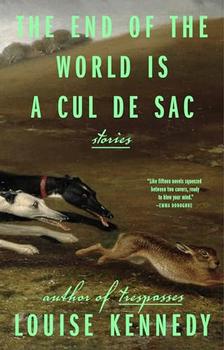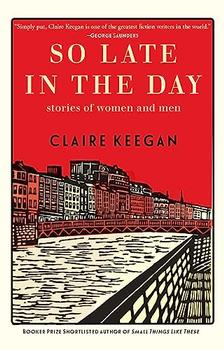Summary | Excerpt | Reviews | Beyond the book | Read-Alikes | Genres & Themes | Author Bio

Stories
by Louise KennedyBrilliant, dark stories of women's lives by "a very major talent" (Joseph O'Connor, Irish Times)
In these visceral, stunningly crafted stories by the author of the much-acclaimed Trespasses, women's lives are etched by poverty—material, emotional, sexual—but also splashed by beauty, sometimes even joy, as they search for the good in the cards they've been dealt.
A wife is abandoned by her new husband in a derelict housing estate, with blood on her hands. An expectant mother's worst fears about her husband's entanglement with a teenage girl are confirmed. A sister is tormented by visions of the man her brother murdered during the Troubles. A woman struggles to forgive herself after an abortion threatens to destroy her marriage. Plumbing the depths of intimacy, violence, and redemption, these stories are "dazzling, heartbreaking ... keen to share the lessons of a lifetime" (Guardian).
The stories are often bleak in concept and narrative. While this can make them tough going if consumed as a whole, many offer subtle glimmers of hope, be it through deadpan humor, hard won resilience, or hints of possible change to come. A couple of entries stand out as highlights: "Garland Sunday" and "Brittle Things." In the former, we look at the repercussions of a couple's decision to terminate an unwanted pregnancy. In the latter, we follow the mother of a non-speaking autistic child, as she attempts to simultaneously shield and nurture him in a world he finds overwhelming. To do so, she must navigate the frustrations of daily life, grapple with misplaced guilt, overcome her husband's denial about their son's condition, and face the constant pity of her friends and neighbors. Throughout the book at large, there is a sense of the weight held by words that go unspoken...continued
Full Review
(597 words)
This review is available to non-members for a limited time. For full access,
become a member today.
(Reviewed by Callum McLaughlin).
 In 2018, in a culturally and historically significant move, the Irish public voted in favor of overturning the country's long-held ban on abortion, with more than 66% supporting the repeal. This victory for improving access to healthcare for millions was by no means an overnight success, however.
In 2018, in a culturally and historically significant move, the Irish public voted in favor of overturning the country's long-held ban on abortion, with more than 66% supporting the repeal. This victory for improving access to healthcare for millions was by no means an overnight success, however.
On the contrary, the fight to legalize abortion in Ireland was a long and arduous one. The procedure was first criminalized in 1861 with the Offences Against the Person Act, which forbid women from seeking to "procure a miscarriage." This law would see a sentence of life imprisonment handed to anyone who had or provided an abortion, or helped to provide access to one in any way.
In 1983, the Eighth Amendment of the Constitution of Ireland...
This "beyond the book" feature is available to non-members for a limited time. Join today for full access.

If you liked The End of the World Is a Cul de Sac, try these:

by Caoilinn Hughes
Published 2025
From the writer Anthony Doerr calls "a massive talent," the story of four brilliant Irish sisters, orphaned in childhood, who scramble to reconnect when the oldest disappears into the Irish countryside.

by Claire Keegan
Published 2023
From Booker Prize Finalist and bestselling author of "pitch perfect" (Boston Globe) Small Things Like These, comes a triptych of stories about love, lust, betrayal, and the ever-intriguing interchanges between women and men.